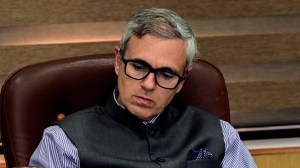‘Forget exhortations in bill, let’s concentrate on the operative’
Ronendra Sen, seen among India’s best ambassadors, with a reputation for forging better ties with the country he is posted to...

Ronendra Sen, seen among India’s best ambassadors, with a reputation for forging better ties with the country he is posted to, is perhaps on his biggest assignment now — to see through the passage of the civil nuclear cooperation deal between the two countries that comes up in the Congress for debate this week.
Have you achieved everything you set out to do when you took over from Lalit Mansingh?
There were several things on the agenda. It is primarily about not just the politico-strategic aspects…but a lot of it started when Lalit Mansingh was here, for instance the NSSP (Next Steps in Strategic Partnership) was announced in January of 2004 simultaneously in Delhi and Washington. Somebody told me at that time it was going to take years for me to get it done. In fact, on the day before Phase-1 was concluded there was a report that it was not going to happen. We successfully concluded a dovetail Phase-2 and Phase-3 of the NSSP before our prime minister’s visit last year.
Are you optimistic that the nuclear Bill is going to pass in Congress?
There will be certain sentiments, which will be expressed, but when it comes to the bottomline, I am convinced that people will realise that this agreement is equally in the interest of both countries and will have a very positive effect globally.
What type of legislation do you envisage that will be passed in Congress?
I do not know what the final legislation will be. It is possible, in order to get broad bipartisan support, there could be strong sentiments reflecting traditional thinking on non-proliferation and exhortation of various kinds. What we should concentrate on are the operative aspects of the legislation, which should conform to the July 2005 and March 2006 joint statements. I would not speculate on the outcome, or comment on the internal political debate on this subject.
If there is a delay in getting the deal passed in Congress, how do you see it affecting Indo-US ties?
My personal assessment is it will leave a negative residue, which will not be good. We will go on with our relationship, which is multifaceted. Nothing can put a full stop to it. But, right or wrong, in symbolic terms, the nuclear deal has come to represent trust, predictability and credibility which are the underpinnings of any long-term relationship. But my assessment is that the agreement will be approved. I also hope that the vote in Congress would be a bipartisan vote in support. However, some reservations are still being voiced by a number of congressmen.
How do you counter statements like the one by Congressman Tom Lantos that India should not position itself as anti-US on Iran at international forums, like at NAM, if India wants the nuclear deal to go through…Iran may face economic sanctions in a few months by the international community. If the nuclear deal is not resolved in Congress by that period of time, is India not going to be in a head-on uncomfortable position?
I have made it clear that if we have legislation that it should be in the framework of and in accordance with the July 18, 2005 and March 2, 2006 joint statements. Secondly, the nuclear deal should be considered on its own merits. We have made our position very clear that Iran has undertaken some obligations and commitments that it should honour…I have also said India is too old a civilisation, too big a country, and too vibrant a democracy for it to follow a script, written in some other capital. But, the sooner it (the nuclear deal) is done the better.
How do India and the US see their relationship in the context of China?
This relationship should not be seen in the context of any third country. I cannot speak for the US, but it is not our intention to act against the interest of any third country. On the basis of what I have been told, this is not also the intention of the US.







- 01
- 02
- 03
- 04
- 05
























